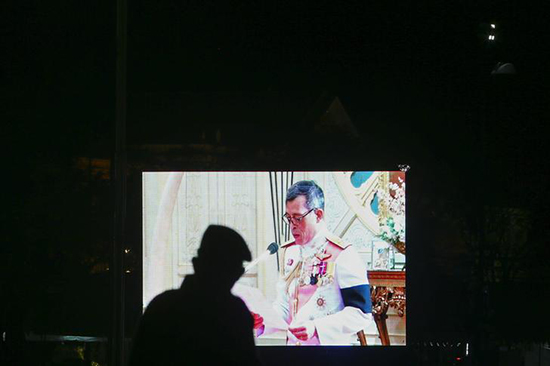Bangkok, March 27, 2017–Thai media regulators should immediately reverse their suspension of the operating license of Voice TV and should allow the media to broadcast and publish freely, the Committee to Protect Journalists said today. Media regulators today suspended the channel’s operating license for seven days.
The state National Broadcasting and Telecommunications Commission ordered Voice TV, a satellite channel which is aligned with the elected government ousted in a 2014 military coup, to cease broadcasting for a week, saying the station had shown “bias” and had made “unjustified criticisms” in several of its news programs, according to news reports.
Lt. Gen. Phirapong Manakit, an NBTC member, was quoted in news reports as saying that the station had been warned several times but had continued to make the same “mistakes.” He said the station had violated both the NBTC Act, a media regulation law, and orders from the military government that broadly restrict media criticism, including of military rule. Phirapong did not indicate in the news reports which specific reports had motivated the suspension.
“Thailand’s military government has consistently said it is preparing to restore democracy but it continues to censor the media in a crude, authoritarian fashion,” said Shawn Crispin, CPJ’s senior Southeast Asia representative. “We call on regulators to reverse the week-long suspension of Voice TV and to stop censoring and harassing the media.”
The news website Khaosod English reported that the ban was in response to the station’s reporting on the killing of an ethnic Lahu activist by a soldier at a military checkpoint last week in the northern province of Chiang Mai. The report also cited Voice TV’s coverage of the government’s seizure last week of an arms cache authorities claimed was owned by a fugitive activist aligned with the former government ousted in the 2014 military coup.
“The reason we were suspended was due to the NBTC’s claim that we have repeatedly committed violations that affect national security and have presented one-sided reports, of which we beg to differ,” Prateep Kongsib, the station’s director of content and news, was quoted as saying by Khaosod English. “This is because we believe opinion is not a threat to national security as long as it is factual.”
Voice TV said they would challenge the ban and would continue broadcasting online during the suspension period, news reports said. The station was not immediately available for comment.
Prime Minister Prayuth Chan-ocha’s military-backed government, known as the National Council for Peace and Order, has imposed measures that give it broad authority to muzzle the media. Military orders 97/2557 and 103/2557 respectively ban news reporting that could “create confusion, instigate unrest, or deepen divisions among people,” or could be considered “malicious” or “misleading” about the NCPO.
Executive order No. 41/2559, passed in July 2016, empowered the NBTC to shutter media outlets for reasons of national security, without the right of appeal, and to block the broadcast of any news or information it deems “detrimental to the political system, or [that] may destabilize national stability or damage the moral values of the people.”
The regime has singled out Voice TV for harassment, including a month-long ban in the direct aftermath of the May 2014 coup. In August 2016, Voice TV political program hosts Nattakorn Devakula and Atukkit Sawangsuk were suspended for 10 days for their critical coverage and analysis of a referendum on a military-backed constitution that was passed amid restrictions on free expression.
Nattakorn’s news programs have been suspended at least four times since the military takeover, most recently last month, according to news reports and interviews with CPJ.
CPJ sent an open letter to Prayuth on February 3 calling on him to repeal all military orders that restrict media freedoms and to scrap pending draft legislation that aims to institutionalize government controls on private media, including a proposed new licensing regime for journalists.
